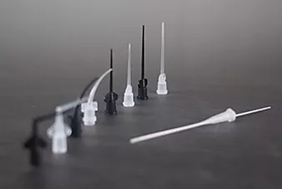Betel
September 27, 2022
Exporting overseas
Ishimura:Can you tell us about your main customers now?
Suzuki:We have around 40 customers, including domestic electrical equipment manufacturers, building material manufacturers, and medical, dental, and nursing equipment manufacturers. We also deliver products overseas.
Ishimura: Where do you deliver your products overseas?
Suzuki:China, South Korea, Europe, and the United States.
Ishimura:What was the reason for starting trade with overseas countries?
Suzuki:We presented our "Thermo Wave Analyzer" at a physics society in our thermal measurement business, and a researcher who attended the society approached us first. The researcher was from a department of a major company that researches materials.
Ishimura:So you met at the society.
Suzuki:Yes. In addition to the customers we deliver directly, there are cases where we deliver to Japanese manufacturers, and those manufacturers bring the products to China. For China, it is difficult to follow up locally, so if we directly export, trading companies are involved.
Ishimura:Is there a high demand for a "Thermo Wave Analyzer" in China?
Suzuki:We used to make a lot of thin film materials that diffuse heat, called graphite sheets, in Japan, but now most of them have moved to China. China is active in developing materials for smartphones.
Ishimura:So, is most of the export of "Thermo Wave Analyzer" to China?
Suzuki:We used to have a lot of deliveries to China, but recently, exports to the United States have also increased.
Ishimura:We used to have a lot of deliveries to China, but recently, exports to the United States have also increased.

Medical plastic parts
Suzuki:Our main connection with the US is through academic societies. We presented our "Thermowave Analyzer" at a conference and received orders from manufacturers and researchers who heard about it. In addition, we have opened up sales channels for our oral healthcare business in the US. We started exhibiting at medical exhibitions in California around 2013. At first, we just wanted to exhibit and see how our company would be evaluated and the reaction of the medical industry, but when we actually exhibited, we realized that the medical industry is a very demanding field (laughs). First of all, it is difficult to do business without having ISO standards for medical use. As a company, we had a lot of confidence in product quality control because we had been making products for major electronics manufacturers for many years, but unlike electrical components, medical parts were not good enough with just dust protection and surface scratches. We realized that the medical industry has a very high hurdle.
Ishimura:Was that hurdle overcome?
Suzuki:Yes, we overcame it with our innate development power (laughs).
Ishimura:So, the US is the center for exporting plastic parts for medical use?
Suzuki:Actually, the export destinations are not limited to the US, but mainly Germany, France, Russia, and South Korea. The opportunity to meet them was certainly at the American exhibition, but the customers are located in various regions.
Ishimura:Advanced products from various countries gather in the US, so the attention of manufacturers from various countries is high. You mentioned earlier about presenting at a conference in the US, but do you attend the conference directly?
Suzuki:Yes, I am fortunate to have connections to present at academic conferences, as I went directly from an American university to graduate school in the US.
Ishimura:Did you study in the US? That's amazing. When did you go to the US?
Suzuki:I went there in the middle of my third year of junior high school. My current chairman, who is also my father, asked me if I wanted to study abroad, and since I had the desire to study abroad, I answered "I want to study abroad," and suddenly I was thrown into an American high school (laughs).
Ishimura:That must have been tough.
Suzuki:It was really tough (laughs). At first, I went to an English language school in the US for about two to three months, and then I immediately entered high school, but I had no friends around and no one who could speak Japanese. So, I was suddenly thrown into that situation. However, although it was difficult at first, I gradually got used to it. In college and graduate school, I studied applied physics and specialized in optical communication, such as fiber optics and lasers.
Ishimura:Why did you choose applied physics?
Suzuki: It was somewhat arbitrary for me, but since my parents were in the science field, I followed the path of science. I chose optical communication and lasers in applied physics because I felt there was a future in them. I may have also taken into account my father's desire since he is the current president of the company and I intended to return to Betel in Japan eventually.
Ishimura:I see. So, President Suzuki gained an international perspective through his experiences and returned to Japan.
Suzuki:Our company jointly developed medical equipment with an American company in 2008, and I think that was also thanks to my study abroad experience, so I am now very grateful for the hardships I went through when I first studied abroad.
Previous article Back to list Next articles






